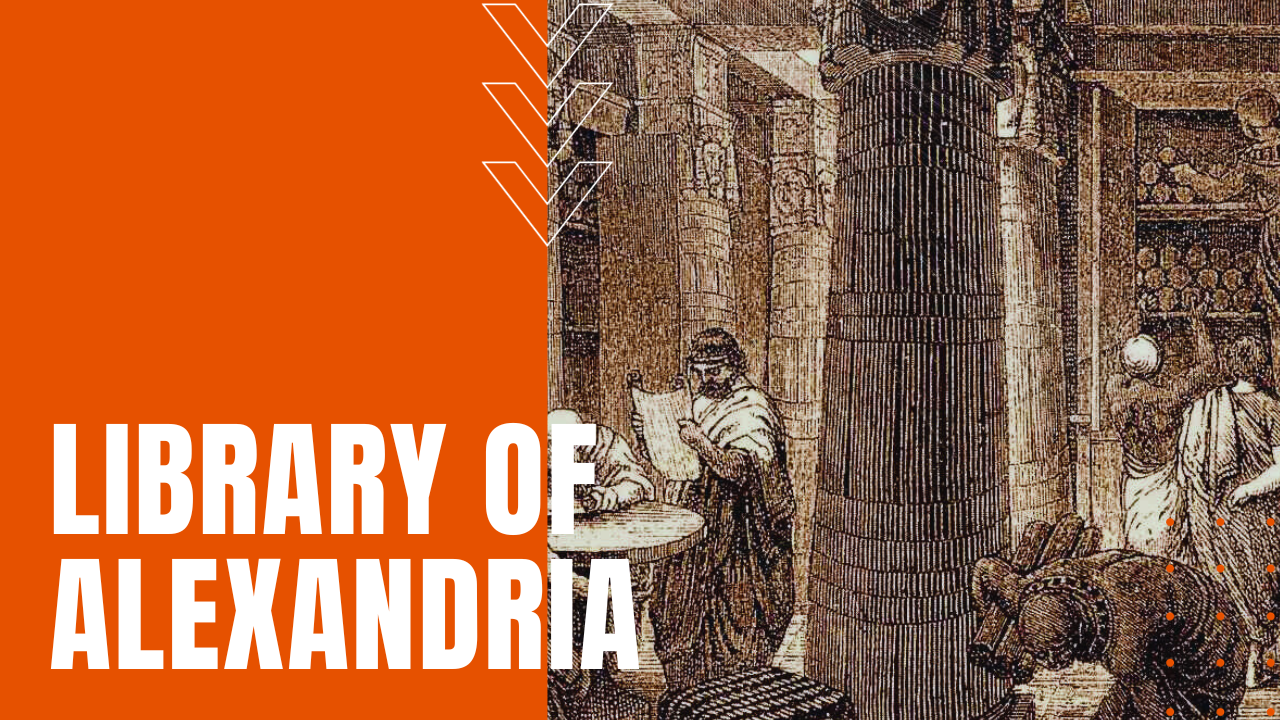The Library of Alexandria

After Alexander the Great’s conquest of ancient lands as far afield as Macedonia and India, his constant hunger for knowledge became symbolic for ancient man’s larger, Renaissance-like quest for books, scholarship, science and art, and while most libraries by the year 295 BC comprised regional repositories of local heritage and traditions, the monarchal reigns of three Egyptian kings sought to create a universal library for the study of all human knowledge to date.
Built by a King
Built by Demetrius of Phaleron under orders by King Ptolemy 1, the Library of Alexandria soon amassed the most important books of ancient times, including the entire corpus of Greek literature and the “books of Aristotle,” leading the three reigns of the Ptolemies to scour the earth for books and knowledge. One form of acquisition was called “from the ships,” when officials searched each ship entering the Alexandrian harbor, and if a book was discovered aboard ship, it was confiscated and taken to the library, returning either the book itself or a copy of the book, if the later was deemed important, at the same time providing fair compensation to the owners of confiscated books.
Wide Range of Languages
Other important works were purchased outright from other great libraries for enormous sums of money, including works by dramatic poets such as Aeschylus, Sophocles and Euripides, while still other sources included purchases made in Athens and Rhodes, which maintained the largest book markets of the time. The Library of Alexandria also included works written or translated from a wide range of languages other than Greek, including a translation of the Septuagint, which remains an indispensable asset to Christian biblical studies.
A Massive Collection
Catalogued initially by Greek physician/surgeon/philosopher Galen, the earliest surviving figures for the number of books housed at Alexandria’s library include a 3rd century BC record of “more than 200,000 books,” whereas a medieval accounting by John Tzetzes mentions 42,000 books in the outer library; 400,000 in the inner Royal Library, plus 90,000 unmixed books, while a still higher estimate of 700,000 volumes was reported between the 2nd and 4th centuries AD, making the Library of Alexandria, one of the many wonders of the ancient world.
